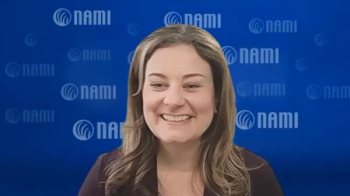
Dr Roland Chen: BMS, Pfizer Committed to Improving Care for Patients With Atrial Fibrillation
GUARD-AF is an example of the commitment of the BMS, Pfizer Alliance in trying to further the standard of care in patients with atrial fibrillation, said Roland Chen, MD, MS, vice president and head of clinical development for innovative medicines at Bristol-Myers Squibb.
GUARD-AF is an example of the commitment of the BMS, Pfizer Alliance in trying to further the standard of care in patients with atrial fibrillation, said Roland Chen, MD, MS, vice president and head of clinical development for innovative medicines at Bristol-Myers Squibb.
Transcript
What must physicians and patients understand about risk of atrial fibrillation? How can earlier detection improve patient care for this condition?
Atrial fibrillation is a condition with very high unmet need. It's important that physicians, healthcare providers, and patients and their families are aware of this unmet need. Atrial fibrillation affects about 8 million people in the US. Atrial Fibrillation itself increases the risk of stroke about 5-fall—many people aren't aware that they have atrial fibrillation. So, trying to detect atrial fibrillation early is important, because if you can detect it early then you can try to prevent the incidence of stroke or the occurrence of stroke, and stroke can be a highly devastating condition for not only patients but families, caregivers. So, to try to avoid the event by screening for atrial fibrillation is a goal and something that GUARD-AF will help us understand better.
How can increasing data within practiced atrial fibrillation detection improve the gap in knowledge by national screening committees and guideline-making bodies?
The GUARD-AF study is a study that will answer a question for which there's no data right now: Does screening for atrial fibrillation actually reduce the risk of stroke? This has been called out as a gap in knowledge by national screening and guideline committees, including the United States Preventive Services Task Force. So, GUARD-AF will help to answer that question for these committees; but just as importantly, GUARD-AF will help to answer this question for healthcare providers and patients who really need to know this kind of information to try to avoid the consequences of serious events such as stroke. GUARD-AF is an example of the commitment of the BMS, Pfizer Alliance in trying to further the standard of care in patients with atrial fibrillation.
Newsletter
Stay ahead of policy, cost, and value—subscribe to AJMC for expert insights at the intersection of clinical care and health economics.





























































